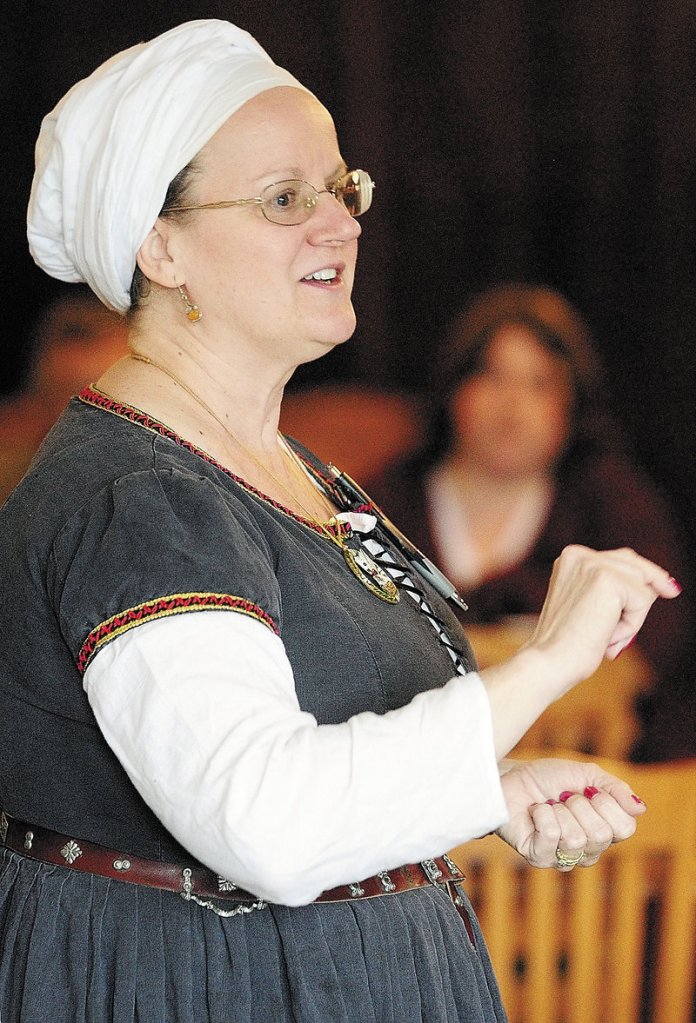AUGUSTA — Before the classes began, the badge of the East Kingdom Brewers’ Guild was unfurled, a creation in black-and-yellow linen.
Two black bees, representing the honey water fermented to make mead, hovered above a curved drinking horn. A bright yellow circle formed the background, making the whole thing resemble a smiley face.
The joke of a modern symbol created to conform with medieval heraldic conventions could represent the Society for Creative Anachronism itself. The living history group filters medieval arts, culture and combat through modern resources to create a vision of a bygone period “as it should have been.”
Home-brewers from all over the society’s East Kingdom – which stretches from Delaware to Quebec – traveled to Augusta this weekend to talk about creating medieval beverages, sample each other’s wares and connect with other people as passionate about researching and recreating the European culture of the Middle Ages.
“This is a social event as much as it is educational,” said Ian Luce, who goes by the nickname Greadden Olthursum Veassellurd and brought some of his mead from Gorham.
Except for amenities such as restrooms and the posters of 20th-century musicians on the walls, the brick arches, rough-hewn granite and tavern-like atmosphere of the River Back Dance Club was perfectly suited to the discussions of meads, ales, cordials and wines.
There was also a class on Turkish coffee, the only form of the beverage available to Europe during the period explored by the Society for Creative Anachronism – generally from the fall of the Western Roman Empire in the late fifth century to the death of England’s Queen Elizabeth I in 1603, according to John Wilson, a Waterboro resident who uses the name Maxton Gunn.
Society members approach their interests academically, starting with lots of research, said Old Town resident Monique Bouchard, the event’s “autocrat” or director.
“Where do I find those recipes?” she said. “And then the big question, once I find them, how do I read them? They’re written in a very archaic tongue, sometimes in a different language, sometimes in an English that sounds like a different language.”
Once translated, the recipes might call for ingredients that are hard to find or have no modern equivalent. Sometimes the recipes are just unappealing, said guild leader Susan Maebert-Frank, a Long Island woman who goes by Baroness Mistress Suzanne Neuber de Londres.
“A lot of cordials up to a certain point were medicines, so they weren’t supposed to taste good,” Maebert-Frank said.
Send questions/comments to the editors.



Success. Please wait for the page to reload. If the page does not reload within 5 seconds, please refresh the page.
Enter your email and password to access comments.
Hi, to comment on stories you must . This profile is in addition to your subscription and website login.
Already have a commenting profile? .
Invalid username/password.
Please check your email to confirm and complete your registration.
Only subscribers are eligible to post comments. Please subscribe or login first for digital access. Here’s why.
Use the form below to reset your password. When you've submitted your account email, we will send an email with a reset code.